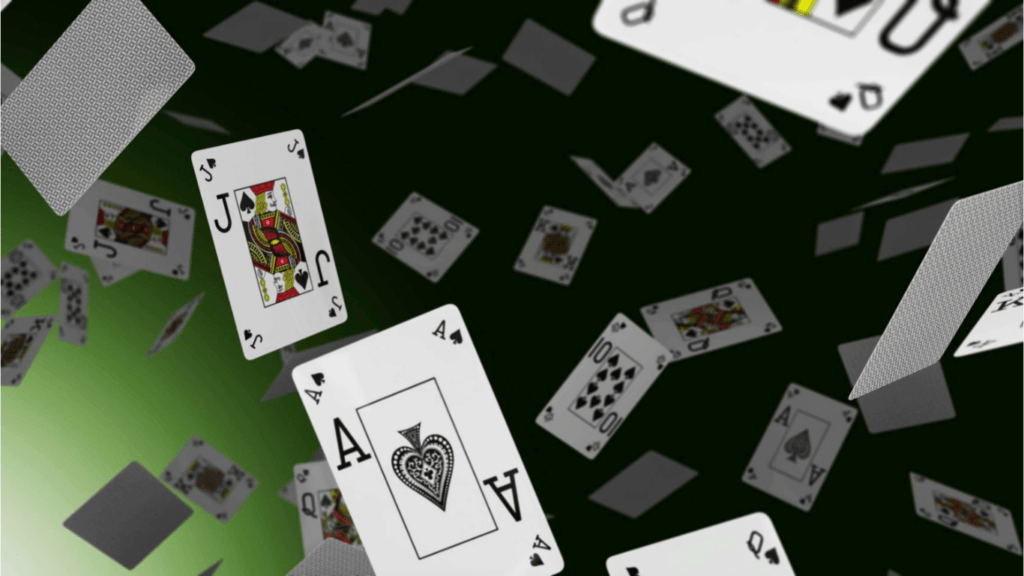Understanding Casino Table Games
Navigating casino table games requires knowledge of game mechanics and strategic approaches. My analysis of various games reveals key elements that impact player success.
Types of Table Games
- Casino table games encompass a range of options, each with distinct rules and player engagement.
- Blackjack offers strategic depth, requiring decisions like when to hit or stand.
- Poker, including variants like Texas Hold’em, combines skill and probability, with the challenge of reading opponents.
- Roulette provides a mix of chance and choice, with bets on numbers or colors.
- Craps, with its unique dice rolls, involves understanding complex betting options.
- Baccarat, favored for its simplicity, focuses on card values and draws.
- Mastery in any of these games involves recognizing their specific dynamics and aligning play styles accordingly.
House Edge and Odds
The house edge represents the casino’s statistical advantage over players, crucial for strategic play. Blackjack offers a low house edge, often around 0.5%, with optimal strategy. Poker varies as it’s player-versus-player, but skill reduces disadvantage. Roulette’s edge depends on variations; American Roulette has a 5.26% edge due to the additional double zero, unlike European’s 2.70%. Craps can offer low edges, like the pass line bet at 1.41%. Baccarat’s banker bet edge is about 1.06%. Knowledge of odds allows players to make informed wagers, enhancing their success potential.
Bankroll Management
Mastering bankroll management is crucial for long-term success in casino table games. By effectively managing my funds, I ensure that I can maintain my betting strategy without risking financial ruin.
Setting a Budget
Establishing a budget helps set clear limits on gambling funds. I allocate a specific amount for each session, ensuring I only use money I can afford to lose. This keeps my finances in check and helps avoid impulsive decisions. For example, if my monthly entertainment budget is $500, I might allocate $100 for a night at the casino. This disciplined approach means I control my gambling activities rather than letting them control me.
Knowing When to Walk Away
- Recognizing when to leave the table can preserve both my bankroll and my peace of mind.
- If my losses start to exceed 30% of my allocated budget for the session, I take a break or call it a night.
- This prevents chasing losses, a common pitfall for players.
- Similarly, I set a winning goal, such as doubling my initial stake, to ensure I leave with a profit when luck’s on my side.
- This strategic pause allows me to keep my emotions in check and make rational decisions.
Mastering Game Strategies
Mastering game strategies forms the bedrock of winning at casino table games. Each game presents unique tactics that can swing the odds in your favor with practice and precision.
Blackjack: Basic Strategy

The key to winning at blackjack lies in memorizing the basic strategy chart, which outlines the best action for any hand versus the dealer’s upcard. This chart reduces the house edge to approximately 0.5%. Start with the fundamentals: always hit on a hand totaling 8 or less and stand on a total of 17 or higher. Additionally, always split aces and 8s and double down on a hard 11 when the dealer shows a lower card like a 6.
Roulette: Spread Betting
In roulette, spread betting can enhance your potential for winning. This approach involves betting on multiple number combinations and categories rather than single numbers. Begin with outside bets like red/black or even/odd, which cover almost half the numbers on the wheel and offer even money payouts. For a more aggressive strategy, consider combining these with inside bets on multiple single numbers to increase your payout potential while maintaining manageable risk.
Poker: Bluffing and Reading Opponents
Effective bluffing in poker revolves around timing and perception. It’s crucial to observe your opponents’ betting patterns and physical behavior to anticipate their potential hands. Employ a bluff when you’re confident they have a weaker hand or show signs of indecision. Equally crucial is reading opponents. Identify tells like nervous gestures, rapid betting, or hesitation, which can indicate a strong hand or an impending bluff. Mastering the art of deception, while discerning others’ intentions, positions you advantageously in any poker game.
Emotional Control at the Tables
Emotional control plays a central role in succeeding at casino table games. Managing reactions to wins and losses and maintaining focus and discipline are key elements.
Handling Wins and Losses
Understanding the emotional shifts from wins and losses helps maintain a balanced approach. After a win, it’s tempting to increase bets impulsively. To avoid this, I suggest adhering to a pre-set betting plan. Conversely, losses can lead to frustration. Instead of chasing losses, I recommend sticking to the predetermined budget, creating consistency and reducing financial risk. Recognizing that variance affects outcomes helps in accepting both winning and losing streaks without drastic emotional reactions.
Staying Focused and Disciplined
Focus and discipline ensure strategic execution. At the tables, distractions abound, from the sensory overload of the casino floor to the eagerness of opponents in games like poker. Staying mentally sharp involves setting clear gaming objectives and resisting impulses driven by emotions. Employing techniques such as deep breathing and periodic breaks ensures sustained focus. By doing so, I create a structured environment that bolsters strategic decisions and reduces room for costly errors in judgment.



 Lead Content Strategist
Willie Maxson is the Lead Content Strategist at Dice Gamblers Deal, where he leverages his extensive knowledge of gambling and content creation to produce educational and engaging material for players at all skill levels. Willie’s background in journalism, combined with a deep understanding of casino games, allows him to break down complex gambling strategies into clear, digestible content that helps readers master the art of winning at the tables. From detailed blackjack strategies to the best slot machine tips, Willie creates resources that provide valuable insights into the world of gambling. His approach is centered around making learning fun and accessible, with content that’s as enjoyable as it is informative. He works closely with the team to ensure that every article, guide, and update on the website is of the highest quality, empowering players to make more informed decisions and ultimately increase their winnings.
Lead Content Strategist
Willie Maxson is the Lead Content Strategist at Dice Gamblers Deal, where he leverages his extensive knowledge of gambling and content creation to produce educational and engaging material for players at all skill levels. Willie’s background in journalism, combined with a deep understanding of casino games, allows him to break down complex gambling strategies into clear, digestible content that helps readers master the art of winning at the tables. From detailed blackjack strategies to the best slot machine tips, Willie creates resources that provide valuable insights into the world of gambling. His approach is centered around making learning fun and accessible, with content that’s as enjoyable as it is informative. He works closely with the team to ensure that every article, guide, and update on the website is of the highest quality, empowering players to make more informed decisions and ultimately increase their winnings.
